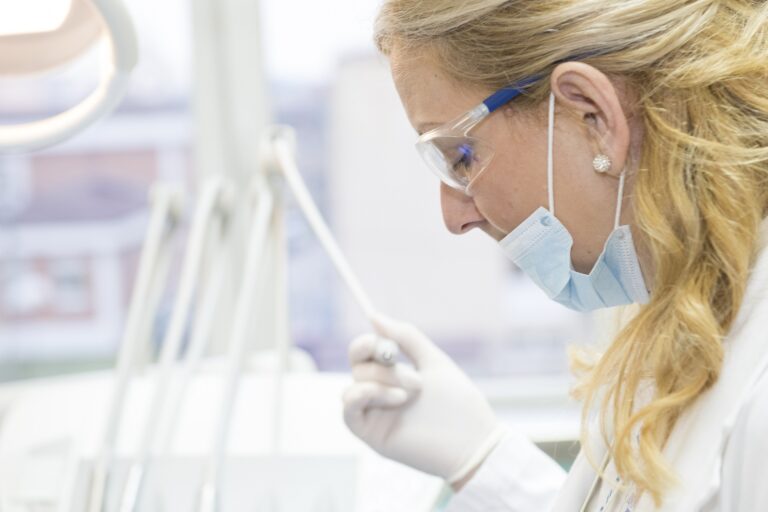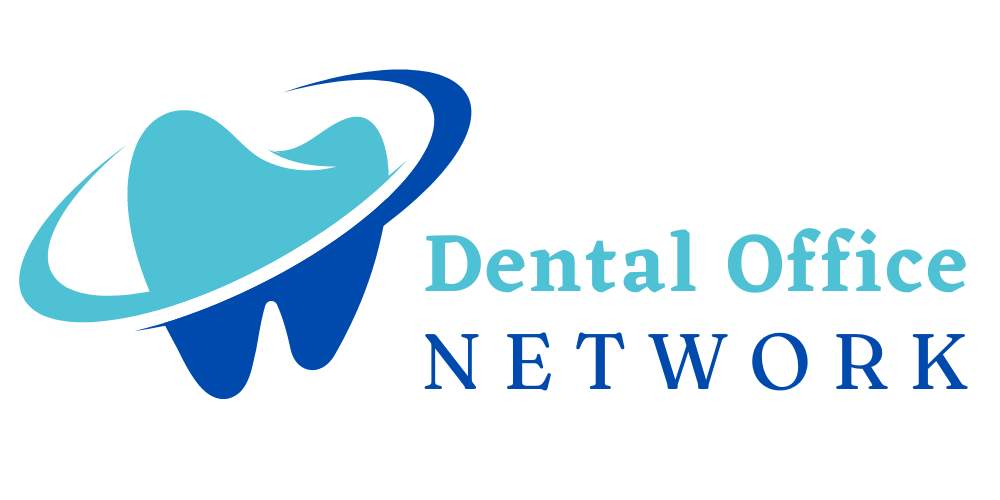Dental Hygienists
- Home
- Dental Hygienists
Dental Hygienists
Dental hygienists are licensed oral health professionals who work alongside dentists to provide preventative and therapeutic dental care to patients. Dental hygienists play a crucial role in promoting oral health and preventing dental diseases. They work alongside dentists to provide preventative and therapeutic dental care to patients. In this webpage, we will discuss the role of dental hygienists in dental offices and their education. We will also examine their rules and responsibilities in the dental office. They are responsible for a range of tasks, including:
Cleaning teeth: Dental hygienists use various tools and techniques to remove plaque, tartar, and other deposits from teeth.
Examining teeth and gums: They examine patients’ teeth and gums for signs of disease, such as cavities, gingivitis, and periodontitis.
Taking dental X-rays: Dental hygienists take X-rays of patients’ teeth and jaws to identify dental problems that may not be visible to the naked eye.
Educating patients on oral health: They teach patients about proper oral hygiene techniques, such as brushing and flossing, and provide information on how to maintain good oral health.
Applying preventive treatments: Dental hygienists apply fluoride treatments and dental sealants to prevent tooth decay.
Administering local anesthesia: In some cases, dental hygienists may administer local anesthesia to patients who need it before dental procedures.
To become a dental hygienist, a person typically needs to complete an accredited dental hygiene program, which usually takes two years, and pass a licensure exam. Dental hygienists must also continue their education to maintain their licensure and stay up-to-date with advances in dental hygiene techniques and technology.

What is the difference between a dentist and a dental hygienist?
Dentists and dental hygienists are both important members of the dental care team, but their roles and responsibilities differ.
A dentist is a licensed oral health professional who has completed a dental school program and obtained a degree in dentistry. Dentists diagnose and treat dental problems, including cavities, gum disease, and tooth decay. They perform procedures such as filling cavities, extracting teeth, and performing root canals. They also create treatment plans for patients and may work with other dental professionals to provide comprehensive care.
A dental hygienist, on the other hand, is a licensed oral health professional who typically has an associate degree in dental hygiene. Their primary role is to help patients prevent dental problems through routine cleanings, oral exams, and education on proper oral hygiene. They clean teeth, take X-rays, apply fluoride treatments and dental sealants, and teach patients about good oral health practices. Dental hygienists may also work alongside dentists during more complex procedures, but they do not diagnose or treat dental problems themselves.
In summary, while both dentists and dental hygienists are important members of the dental care team, dentists focus on diagnosing and treating dental problems while dental hygienists focus on preventative care and patient education.
Education of Dental Hygienists
To become a dental hygienist, one must complete a dental hygiene program accredited by the Commission on Dental Accreditation (CODA). The program typically takes two years to complete and results in an associate degree. However, some programs offer a bachelor’s or master’s degree in dental hygiene, which may take longer to complete.
The dental hygiene program includes coursework in anatomy, physiology, pharmacology, radiography, oral health education, and clinical dental hygiene. Students also gain practical experience by working in dental clinics under the supervision of licensed dental hygienists and dentists.
After completing the dental hygiene program, graduates must pass the National Board Dental Hygiene Examination (NBDHE) and a clinical board examination to obtain licensure. The licensure requirements vary by state, so it is important to check the specific requirements in your state.
Rules and Responsibilities of Dental Hygienists in the Dental Office.
Dental hygienists have several important roles and responsibilities in the dental office. Let’s take a closer look at each of these.
Cleaning teeth
One of the primary responsibilities of dental hygienists is to clean patients’ teeth. They use specialized tools and techniques to remove plaque, tartar, and other deposits from the teeth. This helps prevent tooth decay, gum disease, and other dental problems. Dental hygienists may also polish the teeth to remove surface stains.
Examining teeth and gums
Dental hygienists also examine patients’ teeth and gums for signs of dental diseases such as cavities, gingivitis, and periodontitis. They use probes and mirrors to check for areas of decay or gum recession. If they find any problems, they will inform the dentist, who will develop a treatment plan for the patient.
Taking dental X-rays
Dental hygienists may also take X-rays of patients’ teeth and jaws to identify dental problems that may not be visible to the naked eye. They use special equipment to take digital or film X-rays, and then review them with the dentist to determine if any treatment is necessary.
Educating patients on oral health
Dental hygienists play a critical role in educating patients on proper oral hygiene techniques. They teach patients how to brush and floss effectively, how to choose the right toothbrush and toothpaste, and how to use mouthwash. They may also provide information on the link between oral health and overall health, and offer advice on how to maintain good oral health habits.
Applying preventive treatments
Dental hygienists may also apply preventive treatments to help protect patients’ teeth from decay and disease. For example, they may apply fluoride treatments to strengthen tooth enamel or apply dental sealants to prevent cavities from forming in the grooves of the teeth.
Administering local anesthesia
In some cases, dental hygienists may administer local anesthesia to patients who need it before dental procedures. This allows patients to undergo procedures such as deep cleanings or fillings without experiencing pain or discomfort.
Dental hygienists are an essential part of the dental care team. They work closely with dentists to provide preventative and therapeutic dental care to patients. Dental hygiene education programs prepare students to work in a variety of settings, including private dental practices, community health clinics, and schools. In the dental office, dental hygienists have several important roles and responsibilities, including cleaning teeth, examining teeth and gums,
providing patient education, administering preventive treatments, taking X-rays, and administering local anesthesia.
Dental hygienists are also responsible for maintaining accurate patient records and communicating with the dentist about any concerns or issues they observe during the course of treatment. They must adhere to strict infection control protocols and maintain a clean and sterile work environment to ensure patient safety.
In addition to their clinical responsibilities, dental hygienists may also be involved in community outreach and education programs to promote oral health and prevent dental diseases. They may visit schools, nursing homes, and other community centers to provide oral health education and screenings.
One of the advantages of a career in dental hygiene is the flexibility it offers. Dental hygienists can choose to work full-time or part-time, and may work in a variety of settings. Some dental hygienists work in private dental practices, while others work in community health clinics, schools, or hospitals.
Another benefit of a career in dental hygiene is the job outlook. According to the Bureau of Labor Statistics, employment of dental hygienists is projected to grow 6 percent from 2021 to 2031, faster than the average for all occupations. This growth is due to an increasing demand for preventative dental services, as well as the aging population and increased awareness of the importance of oral health.
In conclusion, dental hygienists play a crucial role in promoting oral health and preventing dental diseases. Their education and training prepare them to provide high-quality dental care to patients, and their responsibilities in the dental office are varied and important. The dental hygiene profession offers a promising career path with opportunities for growth and flexibility.
how to find the best Dental Hygienists?
Finding the best dental hygienist can be a daunting task, but there are several things you can do to make the process easier. Here are some tips for finding the best dental hygienist:
Ask for referrals: Ask your friends, family, and coworkers if they can recommend a good dental hygienist. Personal referrals can be a great way to find a trusted professional.
Check online reviews: Look for online reviews of dental hygienists in your area. Websites such the Dental Office Network can provide valuable information about the quality of care provided by different dental hygienists.
Check credentials: Make sure the dental hygienist you choose is licensed and certified by the appropriate state or national board. You can usually check this information online or by contacting the board directly.
Consider experience: Look for a dental hygienist with several years of experience in the field. Experienced dental hygienists are more likely to have encountered a variety of dental issues and will be better equipped to provide high-quality care.
Consider office location and hours: Choose a dental hygienist whose office is conveniently located and has hours that work with your schedule.
Schedule a consultation: Before committing to a dental hygienist, schedule a consultation to meet with them in person. This will give you a chance to ask questions, discuss your dental history and concerns, and get a sense of their communication style and bedside manner.
Trust your instincts: Ultimately, the most important factor in choosing a dental hygienist is how comfortable you feel with them. If you don’t feel comfortable or confident in their abilities, it’s best to look for someone else.
By following these tips, you can find a dental hygienist who will provide high-quality care and help you maintain good oral health.
Find The Best Dental Hygienist Today
Find And Review Local Dental Hygienists
On The Dental Office Network!

